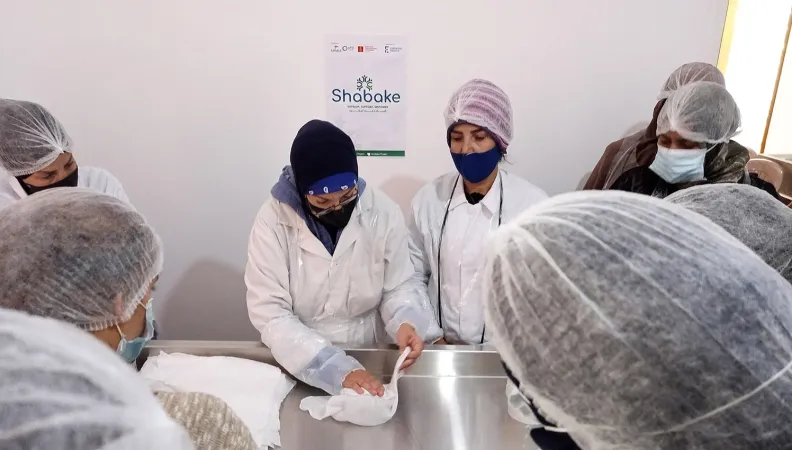Share the page
Shabaké 2 - Support to Lebanese CSOs for a localised response to crises
Project


-
Project start date
-
Status
Ongoing
-
Project duration
-
3 ans
-
AFD financing amount
-
€ 10 000 000
-
Country and region
-
Location
-
Liban
-
Type of financing
-
Beneficiaries
-
OSC locales partenaires
Shabake 2 reflects the French engagement to aid localization by supporting the Lebanese civil society through financial grants to projects and capacity building. The beneficiaries of the project are civil society organizations (CSOs) and the communities targeted by the field projects in different sectors and areas in Lebanon.
Context
Local CSOs play a vital role in responding to the multiple crises in Lebanon due to their proximity to vulnerable populations and their field presence in the country. With the scarcity of public services, these CSOs improve the access of vulnerable communities to basic services. They also contribute to social cohesion in a context of exacerbated tensions.
Description
The second phase of the Shabake project aims to build the autonomy of CSOs in responding to the current crisis and contribute to recovery of Lebanon. In order to ensure a sustainable impact, the project will encourage collaboration between CSOs and municipalities, strengthen the economic models of CSOs and emphasize social entrepreneurship initiatives.
The project’s objectives are :
- Allow CSOs to become trustful implementing partners for vulnerability reduction projects and thematic initiatives
- Support CSOs in their efforts to respond effectively to the current and emerging crises in Lebanon
- Strengthen the technical and organizational capacities and economic models of partner CSOs for a better localization of aid, at the service of vulnerable communities.
The project beneficiaries will be :
- A minimum of 65 local CSOs who will benefit from project grants and capacity building, identified through multiple calls for proposals. These CSOs are referred to as “partners” of the project.
- Vulnerable communities targeted through the local CSOs projects (objectives 1 and 2). Categories and numbers of beneficiaries will be identified upon the selection of the projects.
Impacts
- Projects implemented by local CSOs : 25 vulnerability reduction projects targeting Syrian refugees and Lebanese host communities and 40 quick impact projects in response to emerging crises
- Building the capacity of local CSOs: development of a technical and organizational capacity-building plan for approximately 25 CSOs. 25 training workshops will be organized; 250 staff of local CSOs will take part in capacity-building activities provided by EF. 5 training workshops on crisis response will be provided to all CSOs
- Inclusion of CSOs in the Lebanese aid network: 5 peer to peer groups will be put in place to encourage the exchange of good practices and information between partner organizations.


